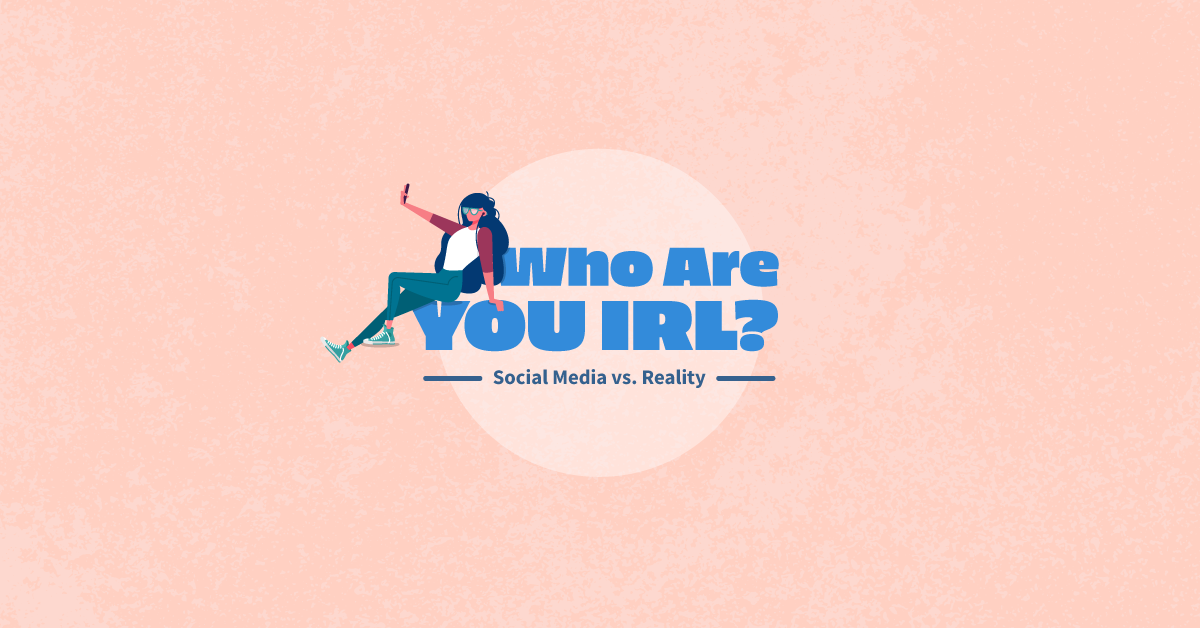

Social media adventure vs reality: the dangers of online comparisons is a prevalent issue in today’s digital age. Millions of people worldwide find themselves drawn into a curated, often unrealistic, portrayal of life presented by online personas. This phenomenon, where social media users compare their lives to the meticulously crafted highlight reels of others, has significant implications for mental well-being and overall happiness. This article will delve into the complexities of social media comparison, identifying the key issues and offering actionable steps to mitigate its negative effects. We will examine how social media adventures often mask the realities of life and discuss the importance of appreciating one’s unique journey.
The Illusion of Perfection
Curated Online Personas
Social media platforms often showcase carefully curated online personas, highlighting only the positive and aspirational aspects of users’ lives. Photos, carefully-selected captions and posts create an illusion of perfect lives, leading to a pervasive comparison culture that can affect users’ perception of themselves. The highlight reel often conceals the struggles, setbacks, and everyday complexities that form a crucial part of human existence. This distorted reality, often amplified by filters and carefully composed imagery, makes it challenging for individuals to maintain a sense of self-worth and appreciation of their own realities.
The Impact of Online Comparisons
Users often find themselves comparing their experiences and achievements to those presented online, leading to feelings of inadequacy and dissatisfaction. This constant comparison fuels feelings of anxiety, depression, and low self-esteem. The curated nature of social media encourages the feeling that everyone else is succeeding, living amazing lives, and having more fun, even if the complete picture of their lives is absent. It’s important to recognize that what is shown isn’t necessarily what’s happening behind the scenes.
Studies consistently demonstrate a strong correlation between social media use and mental health concerns, such as anxiety and depression. Increased exposure to curated online personas can be profoundly damaging to self-esteem and create a constant struggle to measure up.
Recognizing the Dangers of Unrealistic Expectations
The Pressure to Conform
Social media frequently fosters a pressure to conform to unrealistic standards of beauty, success, and lifestyle. Users are bombarded with images and messages promoting specific aesthetics and achievements, influencing their desires and perceptions. This pressure can be especially intense for younger individuals, as their developing identities are particularly vulnerable to external influences.
The Impact on Body Image and Self-Esteem
The pervasive focus on idealized bodies and appearances contributes to negative body image issues and low self-esteem. Constant exposure to filtered images and curated aesthetics can lead to unrealistic beauty standards, impacting self-perception and mental health. The pressure to fit into specific standards can lead to unhealthy habits and behaviors, causing a profound impact on mental and physical health. This constant barrage of unrealistic images can impact not only body image but also overall self-perception and self-esteem.
Practical Strategies for Overcoming the Comparison Trap
Limiting Social Media Use
One of the most effective strategies for mitigating the negative impacts of social media comparison is limiting your time spent on these platforms. Setting time limits, scheduling specific social media use times, and consciously disconnecting from social media can significantly reduce exposure to curated content and unrealistic comparisons.
Prioritizing Real-Life Connections
Cultivating genuine connections with people in the real world is crucial for developing a sense of belonging and support. Engage in activities outside of social media, such as spending time with loved ones, pursuing hobbies, or engaging in community service. Prioritizing real-life experiences over virtual validation creates a strong foundation for self-worth and contentment.
Building Resilience and Self-Compassion
Fostering Self-Awareness
Developing self-awareness is an essential aspect of combating social media comparison. Recognize the triggers and patterns that contribute to negative feelings and comparisons. Identify your own unique values and goals that are aligned with your personal aspirations rather than those promoted online.
Practice Self-Compassion
Treat yourself with the same kindness and understanding that you would offer a friend facing a challenge. Recognize that everyone experiences ups and downs, and that online perfection is not a reflection of reality. Embrace imperfections, and cultivate self-acceptance. Recognize and appreciate your unique strengths and talents. Remember that each person has their own unique path of growth and development.
Understanding Your Social Media Consumption Patterns
Identify Your Triggers
Recognizing patterns in your social media usage can help you understand your triggers for negative feelings. Pay close attention to which accounts or types of content cause you to feel inadequate or negatively about yourself. Limit exposure to those triggers. This self-awareness is key for managing social media use.
The Importance of Authenticity
Embrace Imperfection
Authenticity involves embracing imperfections and accepting that there is no single, perfect online persona. Value and celebrate your true self and your unique journey, rather than conforming to idealized standards set by others online. Recognize that your life, with all its imperfections, is valuable.
Prioritize Experiences Over Validation
Shift your focus from seeking validation online to prioritizing fulfilling experiences in the real world. This includes pursuing hobbies, engaging in meaningful relationships, and creating experiences that bring joy and satisfaction.
Real-Life Examples of the Impact of Social Media Comparisons
Case Study 1: The Influencer Effect
Studies consistently show that exposure to idealized portrayals of life on social media can contribute to body image dissatisfaction. This includes a pervasive trend of idealized beauty standards, often reinforced by the influence of popular online personalities (influencers) who showcase curated portrayals of themselves.
Case Study 2: The Social Comparison Cycle
The impact of social comparison cycles is often seen on social media. Users often compare their lives to those shown in carefully curated online posts, leading to feelings of inadequacy, anxiety, and lower self-esteem. Individuals often grapple with a feeling that everyone else is seemingly more successful, happier, and more fulfilled, exacerbating the pressure to conform to idealized online standards.
Measuring the Impact of Online Comparisons
The Data Behind Social Comparison
Recent studies by various psychology institutions have revealed the detrimental effects of social comparison on self-esteem and mental well-being. Data indicates a strong correlation between increased social media use and elevated levels of anxiety and depression, suggesting a direct link between online comparison and negative emotional states.
The Role of Social Media Platforms in Amplifying Comparisons
Social media algorithms often reinforce social comparison by showcasing content that aligns with users’ interests and engagement patterns. This can lead to a self-reinforcing cycle where users are constantly exposed to idealized portrayals of others, furthering the cycle of comparison and lowering self-esteem.
Conclusion (Restated):
Restatement of Key Points
Understanding the social media adventure vs reality concept is vital for maintaining a healthy relationship with these platforms. Constant exposure to curated online personas can create distorted perceptions of happiness and success, leading to anxiety, depression, and low self-esteem. Embracing authenticity, practicing self-compassion, and limiting social media consumption can help to overcome these challenges and lead to a healthier relationship with social media.
Specific Call to Action for Readers
Take a step back from social media, and commit to creating more meaningful experiences. Explore hobbies, engage in real-life connections, and cultivate self-awareness. Remember your worth lies in your authentic self, not in the validation of others online. You have unique strengths and talents, and it’s essential to celebrate them.
Frequently Asked Questions
What are the common pitfalls of social media comparison?
Social media platforms often create an illusion of perfection, leading users to compare their lives to carefully crafted online personas. This comparison can fuel feelings of inadequacy, anxiety, and low self-esteem, as users focus on the highlights others share and overlook the everyday struggles.
How can I reduce the negative impact of social media comparison on my well-being?
Developing healthy social media habits is key. Limit your time on social media, unfollow accounts that trigger negative feelings, and focus on consuming content that uplifts and inspires rather than compares. Engage in activities outside of social media, and build genuine connections with people in real life. It is important to cultivate self-compassion, understand that everyone has different experiences and circumstances, and focus on your own journey.
In conclusion, navigating the often-glamorized world of social media requires a healthy dose of critical thinking and self-awareness. Social media adventures can be exciting, but understanding the pitfalls of online comparison and prioritizing real-life experiences is key. Take the time to appreciate your unique journey and recognize that curated online personas don’t reflect reality. Remember, true happiness and fulfillment stem from authentic experiences, not the validation of virtual followers. To counteract the harmful effects of social media comparison, establish healthy online habits, prioritize genuine connections, and practice self-compassion. Reflect on your own happiness and identify your individual values, encouraging a more balanced perspective.